
Join us for a panel on Behavioral XR on Thursday, June 3rd from 9:00 – 10:30 am PDT. The event will start with a one-hour panel discussion featuring Dr. Elizabeth McMahon, a psychologist with a private practice in California; Sarah Hill of Healium, a company developing XR apps for mental fitness based in Missouri; Christian Angern of Sympatient, a company developing VR for anxiety therapy based in Germany; and Marguerite Manteau-Rao of Penumbra, a medical device company based in California. This panel will be moderated by Dr. Walter Greenleaf of Stanford’s Virtual Human Interaction Lab (VHIL) and Dr. Christoph Leuze of the Stanford Medical Mixed Reality (SMMR) program. Immediately following the panel discussion, you are also invited to a 30-minute interactive session with the panelists where questions and ideas can be explored in real time.
Register here to save your place now! After registering, you will receive a confirmation email containing information about joining the meeting.
Please visit this page to subscribe to our events mailing list.
Sponsored by Stanford Medical Mixed Reality (SMMR)
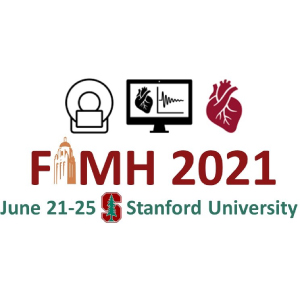
Join us for the 11th biennial International Conference on Functional Imaging and Modeling of the Heart (FIMH). FIMH-2021 will celebrate 20 years of bringing together friends, colleagues, and collaborators to share and discuss the latest in cardiac and cardiovascular imaging, electrophysiology, computational modeling, and translational applications. The event will take place June 21-25, 2021 virtually, via Livestream, Zoom meeting workshops, and Spatial Chat networking.
Sponsored by: Functional Imaging and Modeling of the Heart Conference
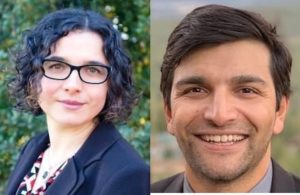
Radiology Department-Wide Research Meeting
• Research Announcements
• Mirabela Rusu, PhD – Learning MRI Signatures of Aggressive Prostate Cancer: Bridging the Gap between Digital Pathologists and Digital Radiologists
• Akshay Chaudhari, PhD – Data-Efficient Machine Learning for Medical Imaging
Location: Zoom – Details can be found here: https://radresearch.stanford.edu
Meetings will be the 3rd Friday of each month.
Hosted by: Kawin Setsompop, PhD
Sponsored by: the the Department of Radiology
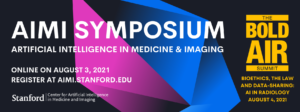
Stanford AIMI Director Curt Langlotz and Co-Directors Matt Lungren and Nigam Shah invite you to join us on August 3 for the 2021 Stanford Center for Artificial Intelligence in Medicine and Imaging (AIMI) Symposium. The virtual symposium will focus on the latest, best research on the role of AI in diagnostic excellence across medicine, current areas of impact, fairness and societal impact, and translation and clinical implementation. The program includes talks, interactive panel discussions, and breakout sessions. Registration is free and open to all.
Also, the 2nd Annual BiOethics, the Law, and Data-sharing: AI in Radiology (BOLD-AIR) Summit will be held on August 4, in conjunction with the AIMI Symposium. The summit will convene a broad range of speakers in bioethics, law, regulation, industry groups, and patient safety and data privacy, to address the latest ethical, regulatory, and legal challenges regarding AI in radiology.
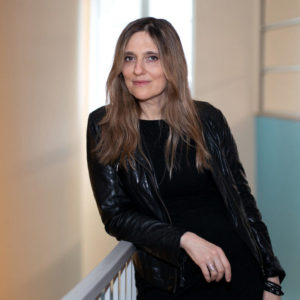
Regina Barzilay, PhD
School of Engineering Distinguished Professor for AI and Health
Electrical Engineering and Computer Science Department
AI Faculty Lead at Jameel Clinic for Machine Learning in Health
Computer Science and Artificial Intelligence Lab
Massachusetts Institute of Technology
Abstract:
In this talk, I will present methods for future cancer risk from medical images. The discussion will explore alternative ways to formulate the risk assessment task and focus on algorithmic issues in developing such models. I will also discuss our experience in translating these algorithms into clinical practice in hospitals around the world.
Keynote:
Self-Supervision for Learning from the Bottom Up
Why do self-supervised learning? A common answer is: “because data labeling is expensive.” In this talk, I will argue that there are other, perhaps more fundamental reasons for working on self-supervision. First, it should allow us to get away from the tyranny of top-down semantic categorization and force meaningful associations to emerge naturally from the raw sensor data in a bottom-up fashion. Second, it should allow us to ditch fixed datasets and enable continuous, online learning, which is a much more natural setting for real-world agents. Third, and most intriguingly, there is hope that it might be possible to force a self-supervised task curriculum to emerge from first principles, even in the absence of a pre-defined downstream task or goal, similar to evolution. In this talk, I will touch upon these themes to argue that, far from running its course, research in self-supervised learning is only just beginning.
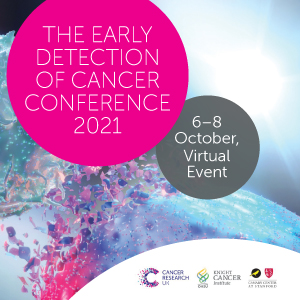
Cancer Research UK, OHSU Knight Cancer Institute and the Canary Center at Stanford, present the Early Detection of Cancer Conference series. The annual Conference brings together experts in early detection from multiple disciplines to share ground breaking research and progress in the field.
The Conference is part of a long-term commitment to invest in early detection research, to understand the biology behind early stage cancers, find new detection and screening methods, and enhance uptake and accuracy of screening.
The 2021 conference will take place October 6-8 virtually. For more information visit the website: http://earlydetectionresearch.com/

CEDSS: The First Cell: A new model for cancer research and treatment
Azra Raza, M.D.
Chan Soon-Shiong Professor of Medicine
Director, Myelodysplastic Syndrome Center
Columbia University Medical Center
Location: Zoom
Meeting URL: https://stanford.zoom.us/s/99340345860
Dial: US: +1 650 724 9799 or +1 833 302 1536 (Toll Free)
Meeting ID: 993 4034 5860
Passcode: 711508
ABSTRACT
Cancer research continues to be predicated on a 1970’s model of research and treatment. Despite half a century of intense research, we are failing spectacularly to improve the outcome for patients with advanced disease. Those who are cured continue to be treated mostly with the older strategies (surgery-chemo-radiation). Our contention is that the real solution to the cancer problem is to diagnose cancer early, at the stage of The First Cell. The rapidly evolving technologies are doing much in this area but need to be expanded. We study a pre-leukemic condition called myelodysplastic syndrome (MDS) with the hope that we can detect the first leukemia cells as the disease transforms to acute myeloid leukemia (AML). Towards this end, we have collected blood and bone marrow samples on MDS and AML patients since 1984. Today, our Tissue Repository has more than 60,000 samples. We propose novel methods to identify surrogate markers that can identify the First Cell through studying the serial samples of patients who evolve from MDS to AML.
ABOUT
Dr. Raza is a Professor of Medicine and Director of the MDS Center at Columbia University in New York, NY.She started her research in Myelodisplastic Syndromes (MDS) in 1982 and moved to Rush University, Chicago, Illinois in 1992, where she was the Charles Arthur Weaver Professor in Oncology and Director, Division of Myeloid Diseases. The MDS Program, along with a Tissue Repository containing more than 50,000 samples from MDS and acute leukemia patients was successfully relocated to the University of Massachusetts in 2004 and to Columbia University in 2010.
Before moving to New York, Dr. Raza was the Chief of Hematology Oncology and the Gladys Smith Martin Professor of Oncology at the University of Massachussetts in Worcester. She has published the results of her laboratory research and clinical trials in prestigious, peer reviewed journals such as The New England Journal of Medicine, Nature, Blood, Cancer, Cancer Research, British Journal of Hematology, Leukemia, and Leukemia Research. Dr. Raza serves on numerous national and international panels as a reviewer, consultant and advisor and is the recipient of a number of awards.
Hosted by: Utkan Demirci, Ph.D.
Sponsored by: The Canary Center & the Department of Radiology
Stanford University – School of Medicine
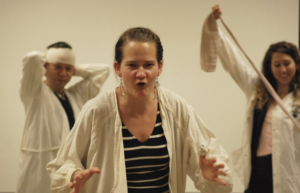
Alone in the Ring (a research-based theatre production about inclusive healthcare workplaces) is coming to campus during the Annual Stanford School of Medicine Diversity Week and National Disability Employment Awareness Month, SMAC and Stanford Medicine and the Muse hope to continue the discussion on how to spark and sustain change towards inclusive workspaces. Alone in the Ring is followed by a discussion between the team and audience members. During the presentation, audience members are encouraged to reflect: How inclusive is your workspace? How could you make it more accessible?

Office of Faculty Development and Diversity and SMAC.
The OFDD team welcomes all Stanford community members to join our inaugural Health Equity Action Leadership (HEAL Network) event, Health Equity Research in the Latinx Community, where faculty who do this work will share their experiences in a fireside chat panel.
Moderator: Lisa Goldman-Rosas
Speakers: Dr. Ken Sutha, Dr. Peter Poullos, Dr. Holly Tabor